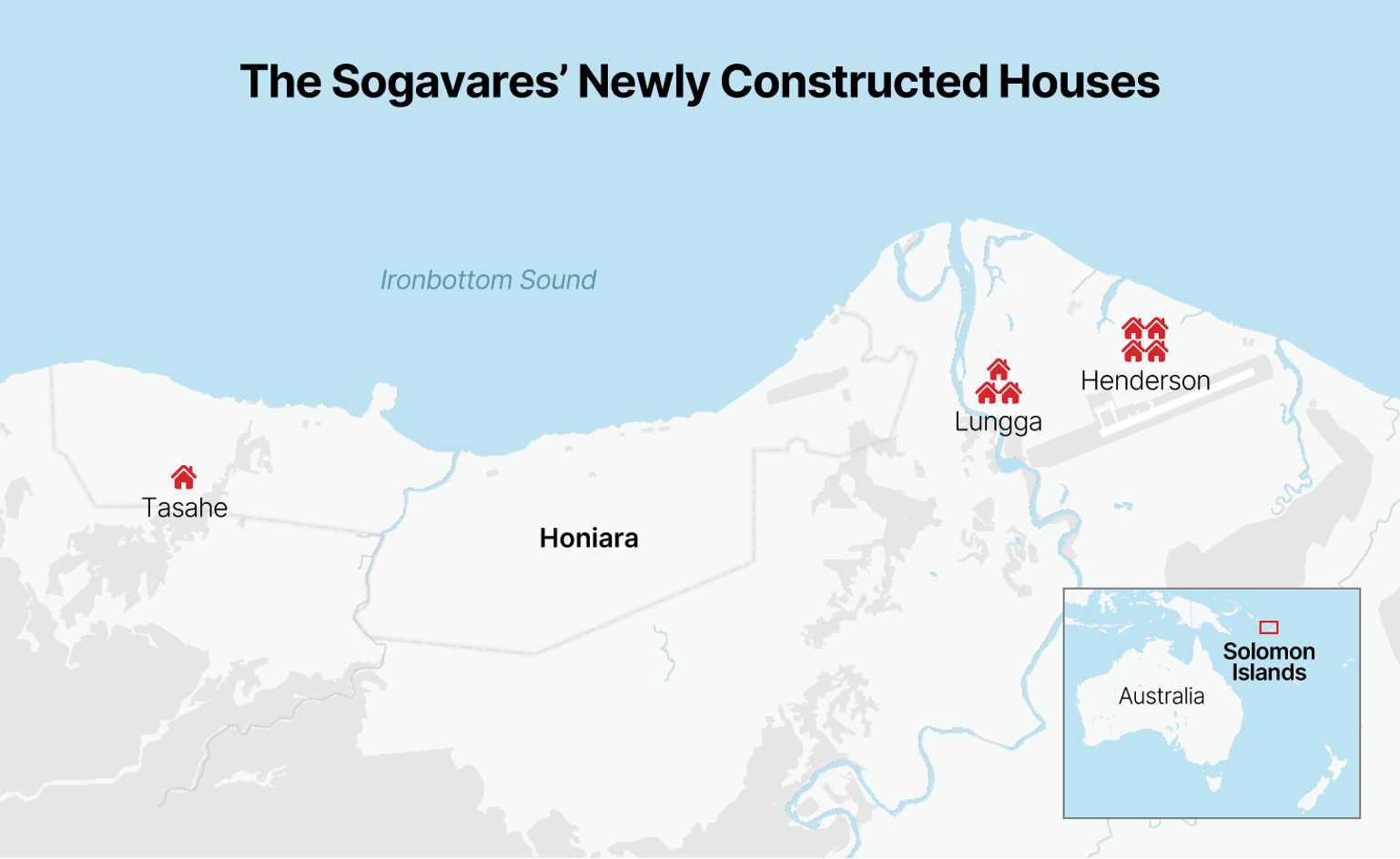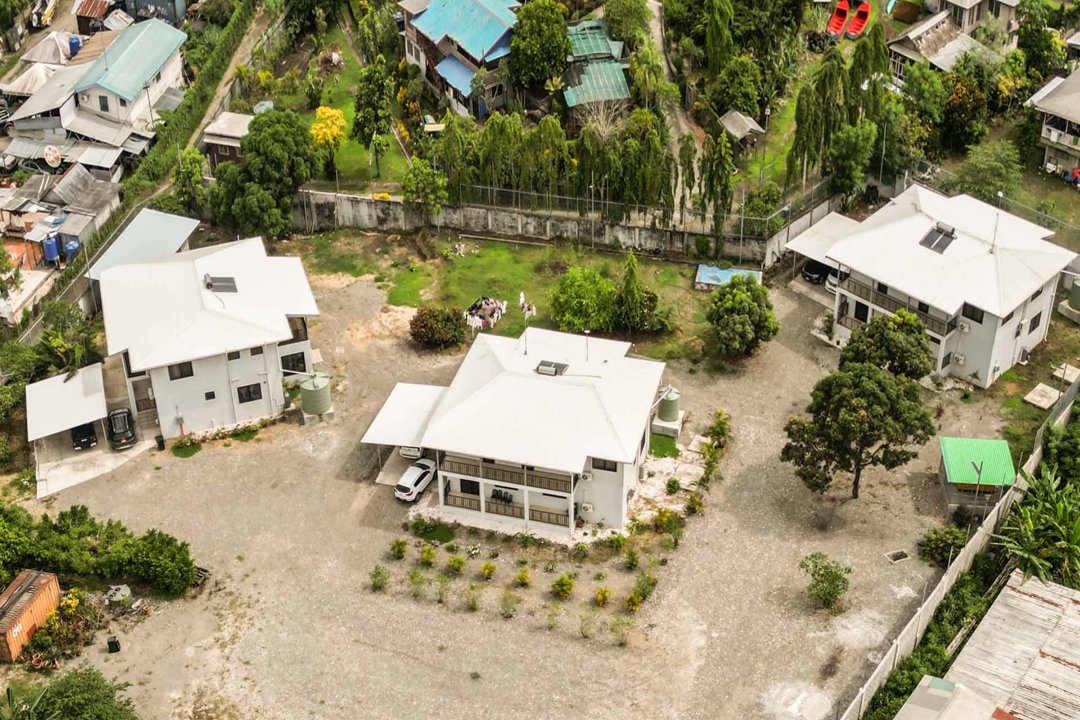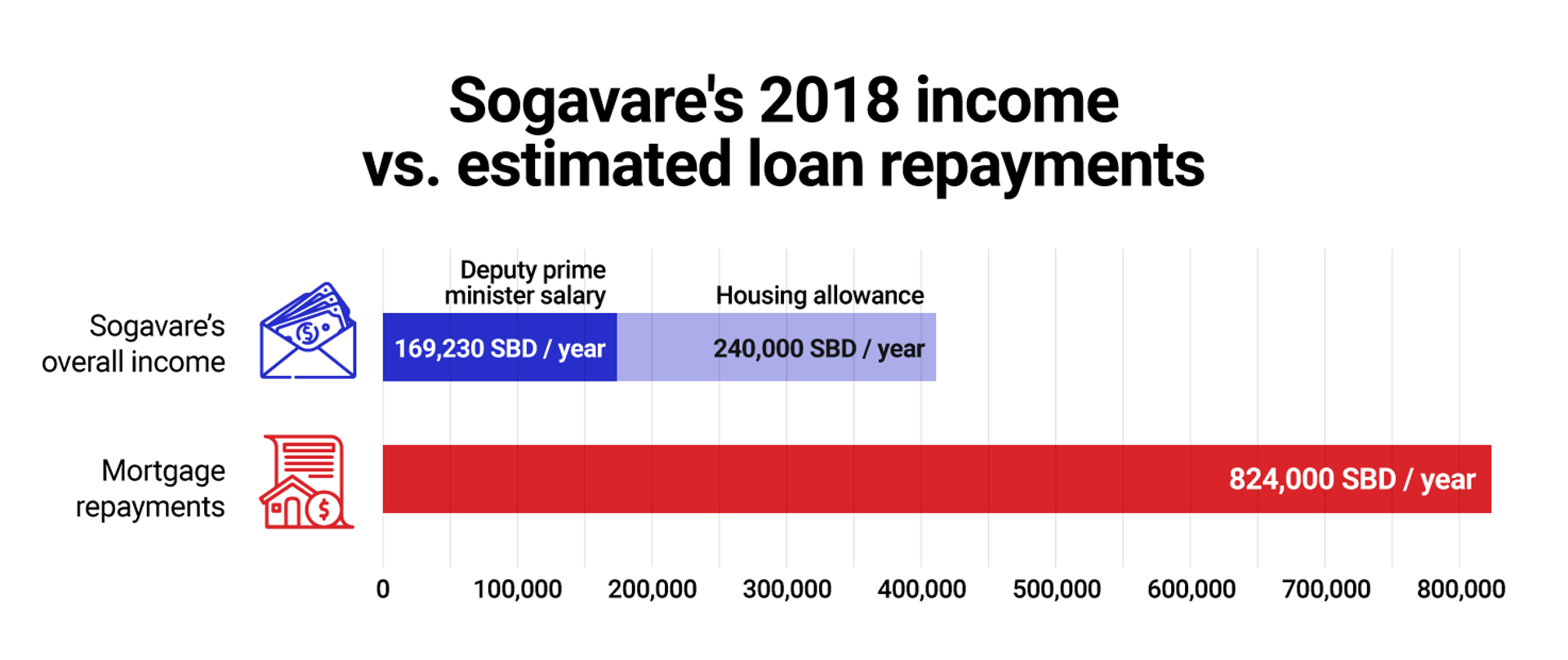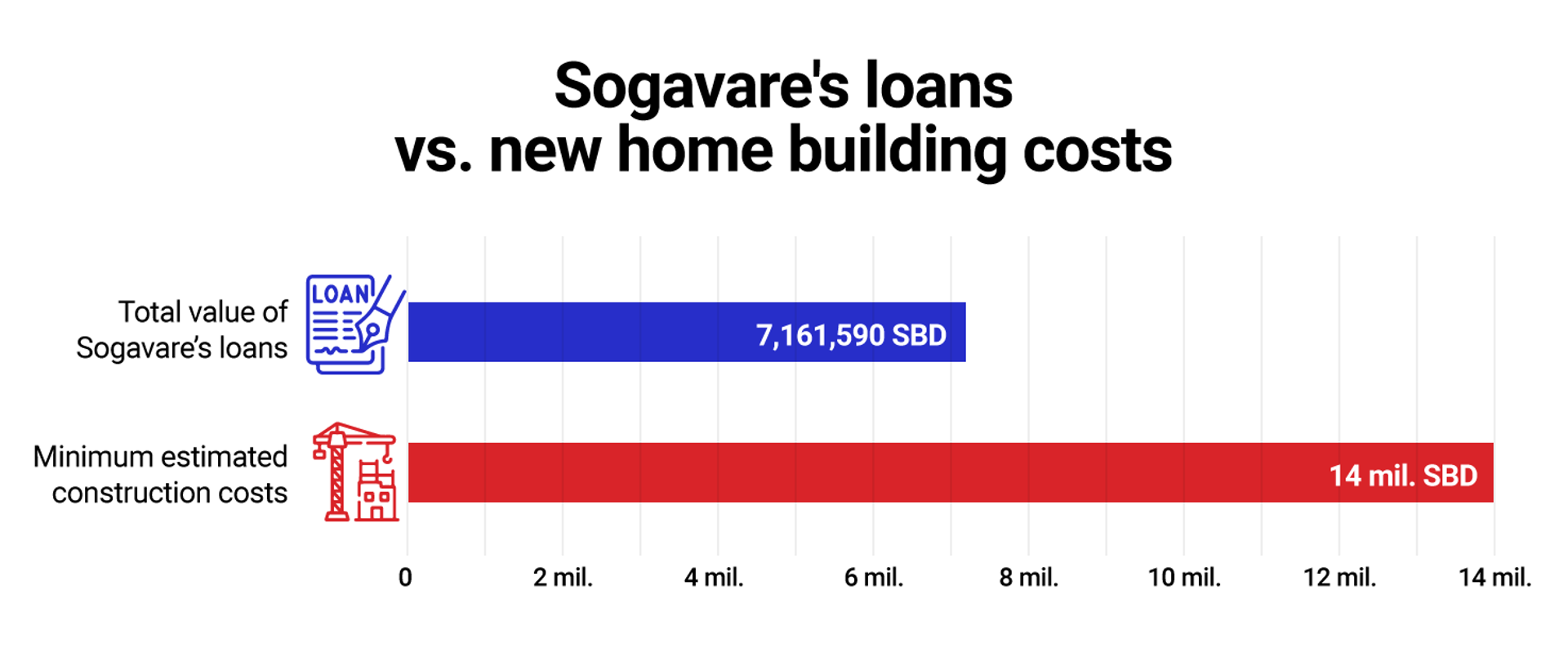On April 7th, the Organized Crime and Corruption Project (OCCRP) and Solomon Islands-based newspaper, In-Depth Solomons, conducted a joint investigation into the real estate properties owned by current Solomon Islands Prime Minister (PM) Manasseh Sogavare. The investigation uncovered details regarding how Sogavare and his wife came to own the properties, the details surrounding the construction of the houses, and the loans used to purchase the houses. Below is a summary of the report, with the full report found here.
Investigation Findings
One of the most significant findings is how the PM and his wife built eight new homes on land they own around the Solomon Islands’ capital, Honiara. They are divided between four houses located in the Henderson, three in Lungga, and one in the Tasahe neighborhoods. The report pointed out that the PM had the houses built at an estimated cost of between 14 million SBD and 26 million SBD ($16.5 million USD to $31 million USD). However, the report also pointed out that the costs only included construction costs and not “additional costs, such as interior furnishings or landscaping.”

The Henderson property has four houses, two large two-story homes, one smaller two-story house, and one small building, built between 2017 and 2019. Three large, two-story houses were built on the property located in the Lungga neighborhood beginning in 2021 after anti-government riots damaged the original house. The last house located in the Tasahe neighborhood is the largest of the eight houses on the properties, “situated on over 13,000 square feet (1,200 square meters) of state land leased by the PM and his wife in 2007 but left empty for about a decade” and was built between 2017 and 2019. Property appraisers value the Tasahe home at between 6 million SBD and 10 million SBD ($707,000 USD and $1.2 million USD), which does not include any additional costs.
However, another aspect is the speed at which the new homes were built, which was unusual by Solomon Islands standards. Several individuals who live nearby the homes told reporters “that they were stunned at the speed with which the new houses were built.” For example, one neighbor who lives near the Sogavares property in Lungga said that the area residents “were so surprised” to see the three homes built in less than a year, “something a Solomon Islander normally couldn’t do.” The resident also said that she “saw trucks driven by what appeared to be Chinese workers drop construction materials at the site” but said “mostly locals” worked at the site. Former PM Rick Houenipwela also echoed the neighbors’ sentiments about the unusual speed of the construction project since he also built his own home in the area.

Houenipwela’s house was constructed out of various local materials, such as concrete blocks, gyprock, and wood, with construction and renovation occurring “in fits and starts.” However, he pointed out that the construction of the current PM’s house did not face the same delays or a shortage of money as it did for him and other Solomon Islanders. For example, the various machines used to construct the house “were just stationed there… Sometimes they would have work at night.” Furthermore, Houenipwela pointed out that the materials and work were of high quality.
The disparity between Sogavare’s official income and the total amount of loans they received to build the homes on the three properties is another one of the report’s significant findings. For example, Sogavare had an eleven-year relationship with the Australian bank, ANZ Bank, that began in 2007. This relationship allowed him and his wife to obtain a 2.5 million SBD ($295,000 USD) mortgage to buy the Lungga property. However, they ended the relationship with the bank in 2018 and began conducting business with the French-owned BRED Bank. The bank gave the Sogavares “three, separate, and very large mortgages totaling 7,161,590 SBD ($843,688 USD)” that were guaranteed using the properties they bought in 2007 and 2015 and a family home located in the Vura neighborhood.
While the Sogavares were able to receive the loans, they likely couldn’t afford the loans when they initially secured them. This sentiment was echoed by financial experts who examined the information the investigators and reporters obtained. The most notable example is how Sogavare was the Deputy Prime Minister and received a salary of 169,230 UBD ($19,935 USD) and a yearly housing allowance of 240,000 UBD ($28,000 USD) when the BRED Bank agreed to finance the loans. They also did not “have any other substantial sources of income” or any declared business interests in 2018. The salaries that Sogavare received in 2018 meant he and his wife did not have enough assets to cover the approximately 824,000 SBD ($97,000 USD) in yearly mortgage payments.

The same financial experts said that the disparity would “normally prompt a bank to turn the Sogavares away.” Furthermore, a forensic accountant said that “based on Sogavare’s income as deputy PM, it doesn’t look like he’d be able to service that original loan just on his income alone” and “there would have to be other sources.” This sentiment was true even when Sogavare received a boost to his salary when he became the PM for the country for the fourth time. Furthermore, the sentiment still holds true even with the income from his wife’s café business and the income made by renting out their home in the Vura neighborhood. Furthermore, former PM Houenipwela, who served as PM before Sogarvare, also reinforced this sentiment since he “struggled to pay for his own home improvements.” He told the reporters that he “did not understand how his successor could afford his own far more ambitious construction projects” and said that he could not do so “on a PM’s salary.”
The last finding is how the Sogavares were able to pay for the significant amount of construction that occurred at the three properties. The property appraisers estimate that the approximately 7 million SBD ($825,000 million USD) they received from BRED Bank would “could cover only half, or even less, of the total construction costs.” The reporters could not find any information in the documents they examined that showed they used additional loans to cover the construction costs of the three houses in the Lungga neighborhood, which likely cost 4 million SBD to 8 million SBD ($471,000 USD to $942,000 million USD). The report pointed out that part of the construction costs were likely “covered by an insurance payout of 2 million SBD ($236,000 million USD).

However, the PM could pay for the construction and the loans by renting out the homes, which would bring in an income “that far outstrips the PM’s official salary.” The reporters were informed by neighbors and real estate agents that some of the homes on the Henderson and Lungga properties are rented out to tenants. However, they could not find any information regarding the monthly rent that the tenants of the Henderson and Lungga homes paid to the PM and his wife. However, financial records “from the previous rentals of two houses owned by the Sogavares,” along with local real estate agents, estimate that the earnings could be approximately 100,000 SBD ($11,800 USD) per month.
Analysis
The report indicates that Sogavare likely obtained the funds and help in securing the loans and to build his home by receiving bribes or other means from China. For example, the money used to pay for the construction of the homes in the Henderson, Lungga, and Tasahe neighborhoods likely came from bribes Sogavare received before and after 2019. The Solomon Islands switched recognition from Taiwan to China in 2019, which likely occurred due to the United Front Work Department giving Sogavare and other officials bribes and other forms of financial incentives to do so. Another aspect that would indicate the Sogavares fueled their property and building construction through Chinese bribes is the speed at which the homes were completed. Both neighbors and former PM Houenipwela noted that the construction speed was unusual based on Solomon Islands standards.
Furthermore, Houenipwela also noted that some of the machinery was kept at the site and was used during the night, which would cost significant amounts of money to rent and operate. China could also have provided Sogavare with construction materials and equipment in lieu of money to hide the true amount of bribes he has received. One example is how Chinese workers delivered construction supplies to the Lungga property during its construction. Another aspect is that China or Chinese-connected agents likely helped the Sogavares secure the loans from the BRED Bank. The most significant piece of evidence is the disparity between the Sogavares’ salaries and the total amount of payments they would have to make on the loans. Under normal circumstances, the bank would have never considered extending the loans to the PM and his wife without a guarantor for the loans.
Sogavare also likely used China to help secure the loans and to cover the construction costs since he has a history of using Taiwan to cover loans for properties he bought. For example, Taiwan assisted him in 2007 when he received a 2.5 million SBD ($295,000 USD) loan from ANZ Bank to buy the Lungga property by providing a letter from the Embassy of Taiwan that specified that the island would guarantee that it would rent the property. However, Sogavare received a significant amount of criticism from lawmakers at the time, which “accused him of exploiting his relationship with a foreign government for personal gain.” He said that he did not see any issues with the deal since there were no laws that prevented him from obtaining a loan from a bank.
He also justified the deal with Taiwan by saying that “Taiwan came and said it was going to have a long term tenancy agreement with us” and that the island “wanted to rent those two houses. What is wrong with that?” The deal with Taiwan led to Sogavare being removed as PM through a no confidence vote. Sogavare likely asked Taiwan to help like it did in 2007, but the country declined due to the current government of Tsai Ing-wen not wanting to partake in ‘checkbook diplomacy.’ However, China was likely receptive to providing Sogavare assistance in securing the loans and providing money to cover the construction costs for the houses. China likely provided assistance, but with the caveat that it would ultimately switch diplomatic recognition from Taiwan to China. The report ultimately illustrates how Sogavare will use the competition between China and Taiwan for influence in the Solomon Islands for his own personal gain.


